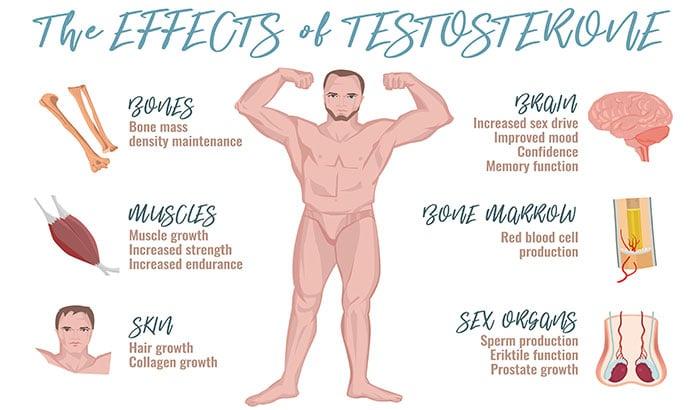As the spotlight on hormone health grows brighter in today’s wellness landscape, testosterone therapy has emerged as a beacon of hope for many seeking relief from a range of ailments, from low energy and mood swings to diminished sexual drive. However, like many treatments, it comes with its own set of complexities and potential drawbacks. This article delves into the multifaceted side effects of testosterone therapy, unraveling the nuances of this powerful intervention. From enthusiasm to apprehension, we will explore both the benefits and the risks, providing a balanced perspective that aims to inform and empower those considering this therapy. Join us as we navigate the intricate web of testosterone therapy and its implications for health and wellbeing.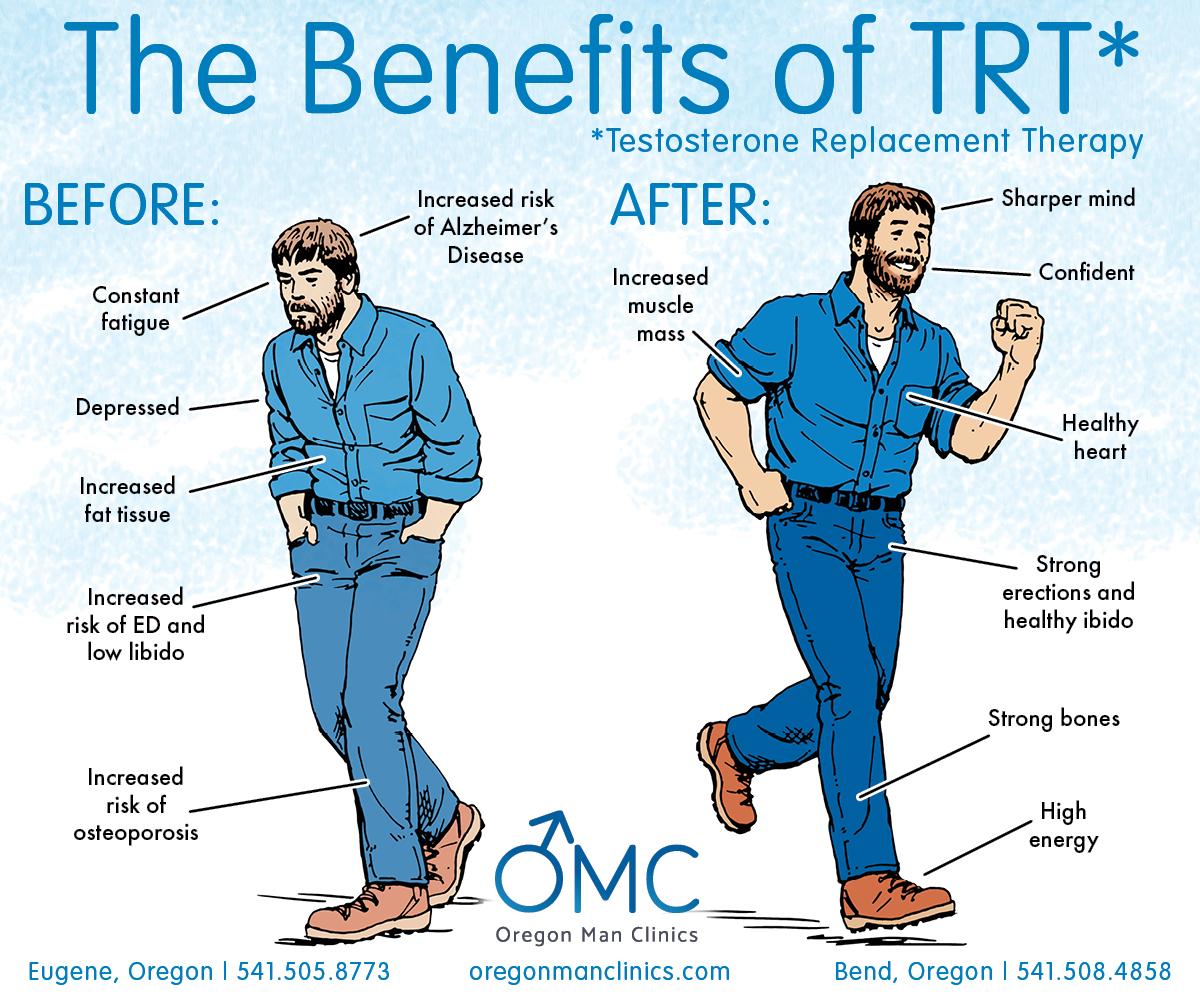
Understanding the Spectrum of Testosterone Therapy Side Effects
Testosterone therapy, while beneficial for many, carries a diverse range of potential side effects that can affect individuals differently based on various factors such as age, dosage, and overall health. Commonly experienced side effects include acne, hair loss, and mood swings, which can have an impact on one’s quality of life. Other individuals might notice changes in libido and erectile function, influencing intimate relationships. It’s important for patients and healthcare providers to maintain open lines of communication, as monitoring these effects can lead to timely adjustments in therapy or dosages.
In addition to these common symptoms, certain risks associated with long-term testosterone therapy warrant consideration. Some less frequent yet serious side effects may include elevated blood pressure, sleep apnea, or increased risk of cardiovascular issues. Understanding these complexities can empower patients to make informed decisions. Below is a concise summary of notable side effects associated with testosterone therapy:
| Side Effect | Notes |
|---|---|
| Acne | Common in younger users; may require dermatological treatment |
| Hair Loss | Can be genetic or accelerated by therapy |
| Mood Changes | May include irritability or aggression; counseling can help |
| Increased Cardiovascular Risk | Studies show mixed results; should be monitored |
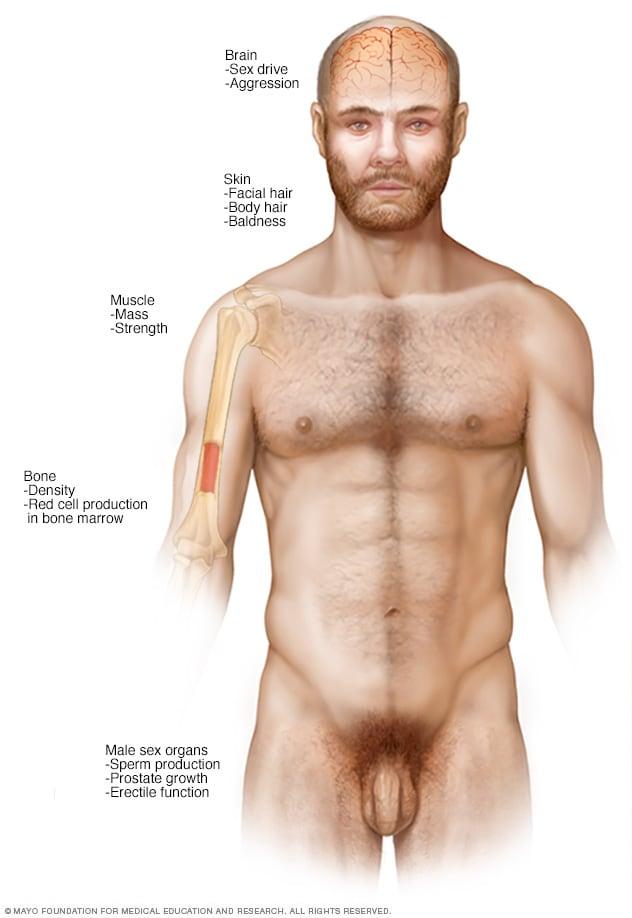
Navigating Physical Changes: Weight Fluctuations and Muscle Growth
As individuals embark on testosterone therapy, it is common to encounter significant physical changes, especially in terms of weight fluctuations and muscle growth. Many people report an increase in muscle mass as their body responds to enhanced testosterone levels. This positive outcome, however, can be coupled with some unpredictability regarding weight. Factors such as diet, exercise routines, and overall lifestyle play a crucial role in how one’s body adapts to the therapy. It’s important to monitor progress closely and maintain a balanced lifestyle to optimize results.
Weight changes can be influenced by several elements during testosterone therapy, and understanding these can help in managing expectations. Here are some key points to consider:
- Increased muscle mass: This often leads to a temporary weight gain, which is generally a positive sign of muscle development.
- Fat distribution: Testosterone can alter the way fat is stored in the body, potentially shifting it away from areas typically associated with higher fat accumulation.
- Water retention: Hormonal fluctuations can sometimes cause the body to retain more water, affecting overall weight.
- Dietary adjustments: With changes in metabolism, individuals may need to reassess their dietary habits to either gain or lose weight effectively.
| Physical Change | Possible Cause |
|---|---|
| Muscle Growth | Increased testosterone levels |
| Weight Gain | Increased muscle mass & water retention |
| Fat Loss | Improved metabolism |
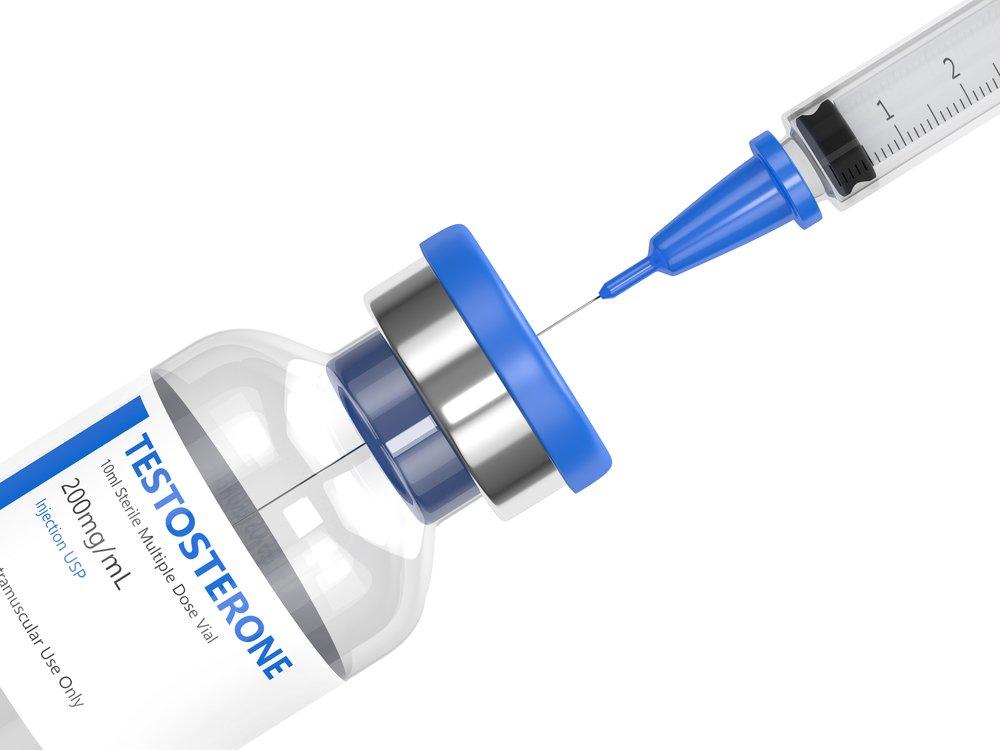
The Emotional Rollercoaster: Mood Swings and Psychological Impacts
Engaging in testosterone therapy can often feel like embarking on an emotional rollercoaster, where the peaks of euphoria can swiftly descend into valleys of despair. Individuals undergoing treatment may experience strong mood swings that disrupt daily life and relationships. These changes may manifest as increased irritability, sudden bursts of anger, or episodes of profound sadness. Understanding these fluctuations is crucial as they can signal deeper psychological impacts that may require attention beyond the therapy itself. The emotional landscape can shift unpredictably, leading to confusion and frustration for both the individual and those around them.
The psychological effects of testosterone therapy are varied and can be influenced by a range of factors, including dosage and individual sensitivity. Some patients report a sense of heightened confidence and motivation, while others may find themselves grappling with anxiety and restlessness. Common emotional experiences include:
- Enhanced irritability: Minor frustrations may trigger significant reactions.
- Increased anxiety: Heightened levels of testosterone can sometimes lead to feelings of restlessness.
- Depressive episodes: Fluctuations in hormone levels may contribute to feelings of sadness.
To illustrate the potential emotional responses, consider the following table:
| Emotional Response | Frequency | Potential Management Strategies |
|---|---|---|
| Irritability | Moderate | Mindfulness and breathing exercises |
| Anxiety | High | Cognitive Behavioral Therapy (CBT) |
| Depression | Variable | Medication adjustment and counseling |
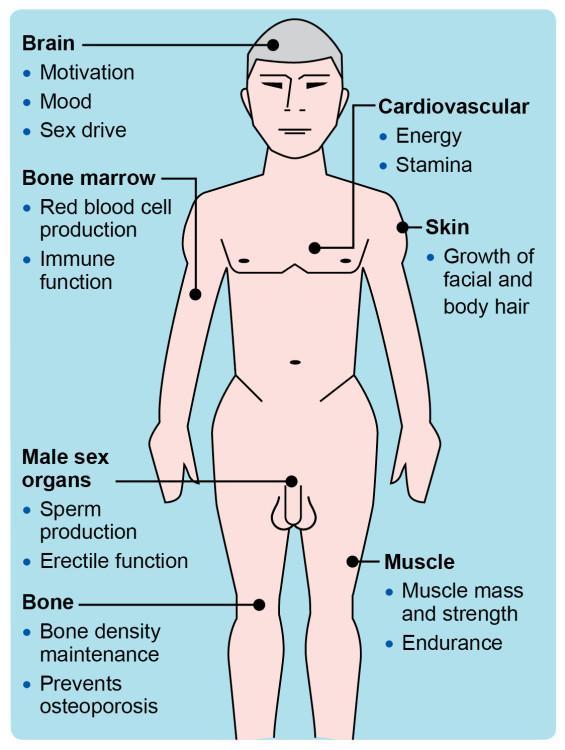
Cardiovascular Considerations: Heart Health and Hormone Balance
Understanding the intricate relationship between cardiovascular health and hormone levels is essential, especially for those considering testosterone therapy. Although testosterone can play a role in enhancing muscle mass and overall energy levels, it can also bring about various cardiovascular concerns. Elevated testosterone levels may lead to increased blood viscosity, potentially raising the risk of blood clots and cardiovascular events. Furthermore, patients are advised to monitor their lipid profiles, as testosterone therapy can alter cholesterol levels, posing risks to heart health.
Patients undergoing testosterone therapy should engage in regular cardiovascular assessments to ensure optimal heart function. Key considerations include:
- Blood Pressure Monitoring: Regular checks can help detect hypertension early.
- Lipid Profiling: Regular tests can assess cholesterol levels and adjust treatment as needed.
- Assessment of Symptoms: Any signs of chest pain, shortness of breath, or unusual fatigue should prompt immediate medical evaluation.
In a clinical setting, the following simple table outlines common cardiovascular effects associated with testosterone therapy:
| Effect | Considerations |
|---|---|
| Increased Hematocrit | Risk of thrombosis; regular testing recommended. |
| Altered Lipid Levels | Potential for increased LDL and decreased HDL. |
| Blood Pressure Changes | Need for regular monitoring and possible lifestyle adjustments. |
Sexual Health Redefined: Libido Changes and Erectile Function
Understanding libido changes and erectile function is crucial, particularly when considering the implications of testosterone therapy. While many seek this treatment to enhance sexual well-being, it’s essential to recognize that fluctuations in sexual desire and erectile function can be side effects of hormone replacement. After initiating testosterone therapy, individuals may experience:
- Increased Libido: Some may find a boost in sexual desire initially, which can enhance intimate relationships.
- Decreased Libido: Conversely, it’s not uncommon for others to experience a decline in sexual interest as the body adjusts to hormonal changes.
- Erectile Dysfunction: Temporary erectile issues may arise, potentially linked to dosage levels or individual health factors.
Monitoring these changes is vital for adjusting therapy to meet personal health goals. Furthermore, the balance of testosterone can significantly influence emotional aspects that are intertwined with sexual health. Consider the following table, which summarizes common factors affecting libido and erectile function during testosterone therapy:
| Factor | Effect on Libido | Effect on Erectile Function |
|---|---|---|
| Dosage Levels | May increase or decrease | Can cause fluctuations |
| Duration of Therapy | Gradual improvement expected | Initial instability |
| Individual Health Status | Variable responses | Potential for chronic issues |
Monitoring and Managing Side Effects: Best Practices for Patients
Effectively monitoring and managing side effects during testosterone therapy is crucial for ensuring both safety and wellbeing. Regular check-ins with your healthcare provider can help identify potential issues before they become problematic. Consider keeping a symptom diary where you note any physical or emotional changes that occur throughout your treatment. This diary can include the following information:
- Date and Time
- Symptoms Experienced
- Severity of Symptoms
- Activities or Triggers
- Medications Taken
Moreover, fostering an open and honest dialogue with your healthcare provider about any concerns is vital. Be aware of potential side effects, such as mood swings, changes in libido, or adjustments in body weight. A simple table can help you track your understanding of common side effects and their management:
| Side Effect | Management Strategy |
|---|---|
| Acne or Skin Changes | Maintain a skin care routine and consult a dermatologist if persistent. |
| Increased Aggression | Practice stress-reduction techniques, such as yoga or meditation. |
| Sleep Apnea | Discuss sleep health with a specialist and consider a sleep study. |
| Fluid Retention | Monitor salt intake and report unusual swelling to your doctor. |
Empowering Patients: Open Communication with Healthcare Providers
One of the cornerstones of effective healthcare is the ability of patients to engage in open and honest discussions with their providers. This is especially true when it comes to treatments like testosterone therapy, which can come with a range of potential side effects. By fostering an environment of transparency, healthcare providers can encourage patients to express their concerns, ask questions, and share their experiences. This not only enhances the therapeutic relationship but also empowers patients to take an active role in their treatment journey. Understanding your treatment is vital, and communication paves the way for tailored approaches that best suit individual needs.
Patients should feel encouraged to openly discuss the various aspects of testosterone therapy, including any side effects they may experience. Some common concerns include:
- Weight Gain: Increased body fat can occur due to hormonal changes.
- Mood Changes: Fluctuations in mood, including increased irritability or anxiety.
- Sleep Apnea: Worsening of sleep disorders can be a risk.
- Cardiovascular Issues: Potential risks of increased red blood cell counts.
In addressing these concerns, healthcare providers can take proactive steps to monitor and mitigate adverse effects. Regular check-ins and lab tests can create a supportive framework to help patients navigate their therapy safely. Utilizing shared decision-making can be a powerful tool in customizing treatment plans, making it crucial for both parties to maintain ongoing dialogue throughout the process.
Q&A
Q&A: Understanding the Side Effects of Testosterone Therapy
Q: What is testosterone therapy?
A: Testosterone therapy involves administering synthetic testosterone to individuals with low testosterone levels—often referred to as hypogonadism. This treatment can come in various forms, including injections, patches, gels, and pellets. The goal is to restore hormonal balance and alleviate symptoms such as fatigue, low libido, and mood changes.
Q: What are the common side effects of testosterone therapy?
A: Just like any treatment, testosterone therapy comes with potential side effects. Commonly reported effects include acne, increased body and facial hair growth, changes in mood such as irritability or mood swings, and, in some cases, sleep apnea. It’s essential to maintain a dialogue with your healthcare provider to manage these effects effectively.
Q: Are there any serious side effects associated with testosterone therapy?
A: Yes, while many side effects are manageable, there are serious concerns that should be monitored. These can include cardiovascular issues, such as an increased risk of heart attack or stroke, elevated red blood cell counts (a condition called polycythemia), and possible prostate growth or issues. Regular check-ups and blood tests are crucial for anyone undergoing therapy.
Q: Can testosterone therapy affect fertility?
A: Yes, testosterone therapy can impact fertility, particularly in younger individuals. The administration of external testosterone can reduce the body’s natural production, potentially affecting sperm production and leading to reduced fertility. Those considering fatherhood in the future should discuss fertility preservation options with their healthcare provider before starting treatment.
Q: How can one differentiate between normal side effects and more serious issues?
A: It’s essential to be in tune with your body. While mild side effects—like acne or mood shifts—can be relatively common, symptoms such as chest pain, severe headaches, or shortness of breath warrant immediate medical attention. Keeping a diary of your experiences can aid discussions with your healthcare provider to determine what may be expected and what needs further investigation.
Q: Is testosterone therapy suitable for everyone with low testosterone?
A: Not necessarily. Testosterone therapy is typically recommended for those with clinically low testosterone levels accompanied by significant symptoms. Factors such as age, overall health, and specific medical conditions must be considered. A thorough evaluation by a healthcare professional ensures safe and appropriate treatment decisions.
Q: What can patients do to minimize potential side effects?
A: Patients should engage in open communication with their healthcare provider, adhering closely to prescribed doses and attending regular follow-up appointments. Maintaining a healthy lifestyle—through balanced nutrition, regular exercise, and adequate sleep—can also bolster the body’s ability to adapt to hormone changes and mitigate some side effects.
Q: Are there alternative treatments to testosterone therapy?
A: Yes, other options may help manage low testosterone symptoms depending on the underlying cause. Lifestyle modifications, such as weight loss and exercise, can naturally boost testosterone levels. Additionally, some patients may explore herbal remedies or alternative medications under the guidance of a healthcare professional.
Q: What is the best course of action for someone considering testosterone therapy?
A: The best approach is to consult with a knowledgeable healthcare provider who specializes in hormone therapy. They can offer a comprehensive evaluation, discuss potential benefits and risks, and tailor a treatment plan that ensures both safety and effectiveness. Ultimately, informed decisions lead to the best outcomes.
Concluding Remarks
As we conclude our exploration of testosterone therapy and its potential side effects, it’s essential to remember that every individual’s journey is unique. While testosterone can offer significant benefits for those with deficiencies, the accompanying risks necessitate careful consideration and consultation with a healthcare professional. Awareness is crucial: understanding both the rewards and the repercussions allows for informed decisions about one’s health. Whether you are contemplating therapy or are already on the path, prioritizing open communication with your doctor will provide clarity and support. As we navigate the intricate landscape of hormones, knowledge empowers us to make choices that align not only with our physical health but also with our overall well-being. balancing the scales of health requires diligence, patience, and a personalized approach to care.

